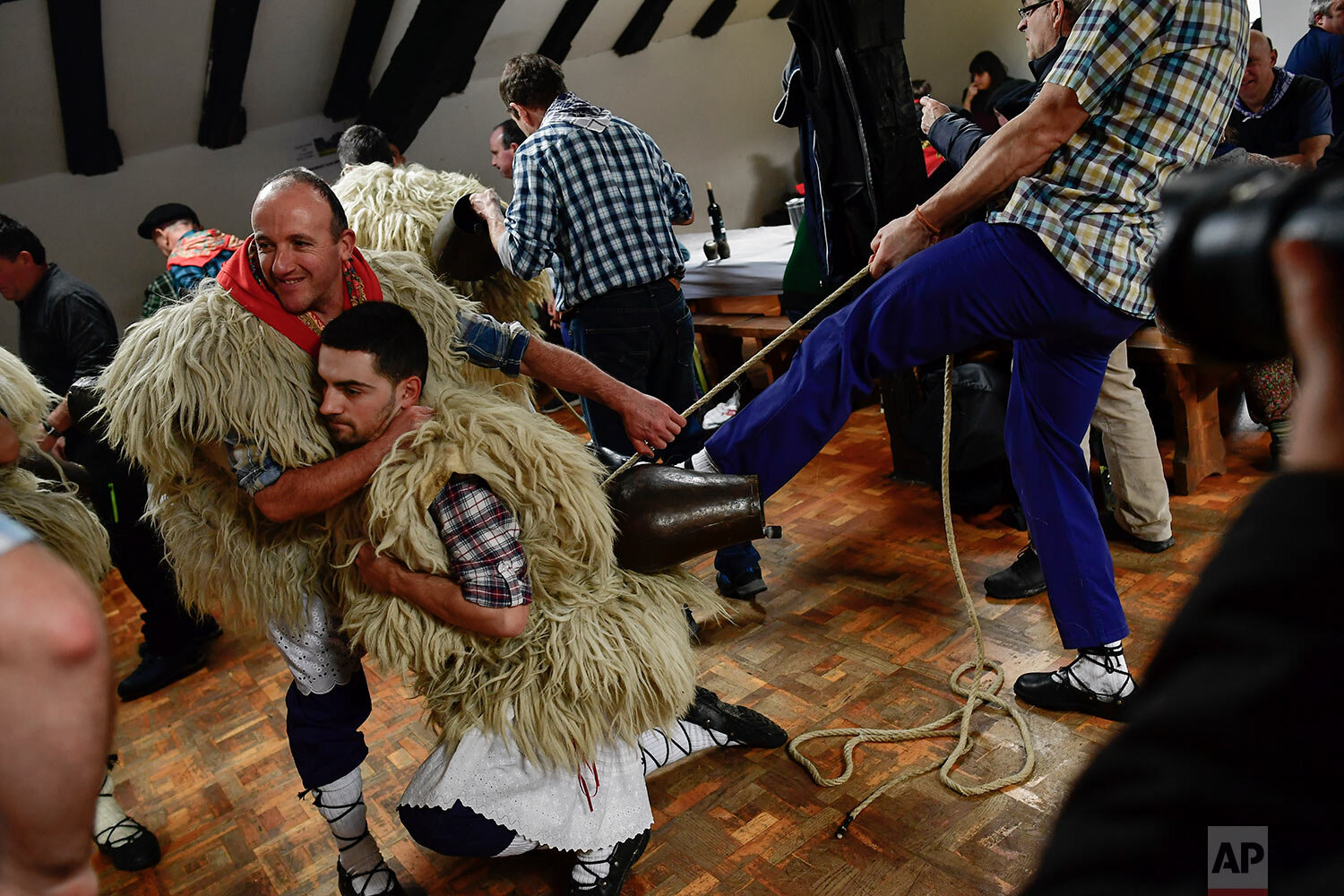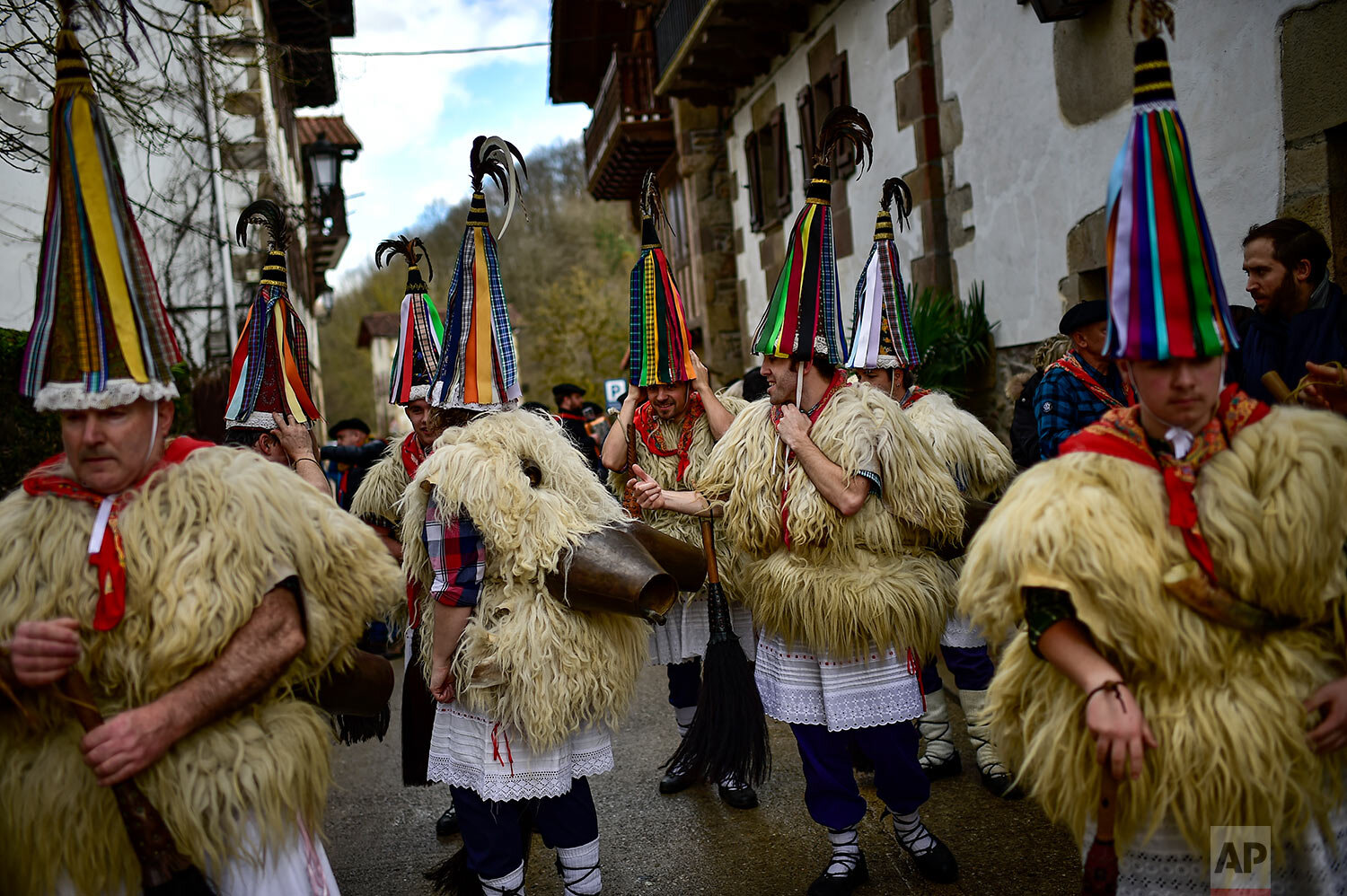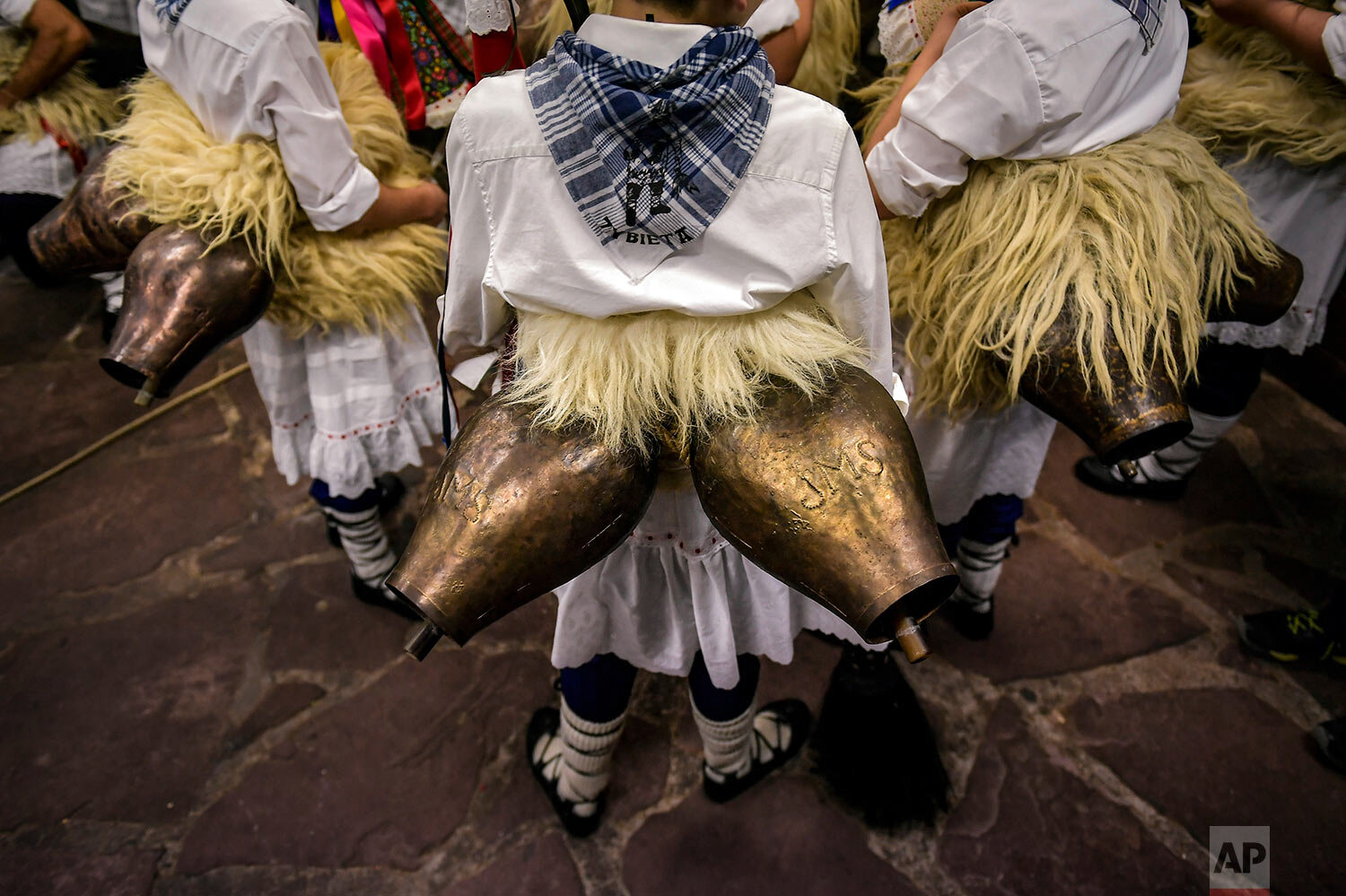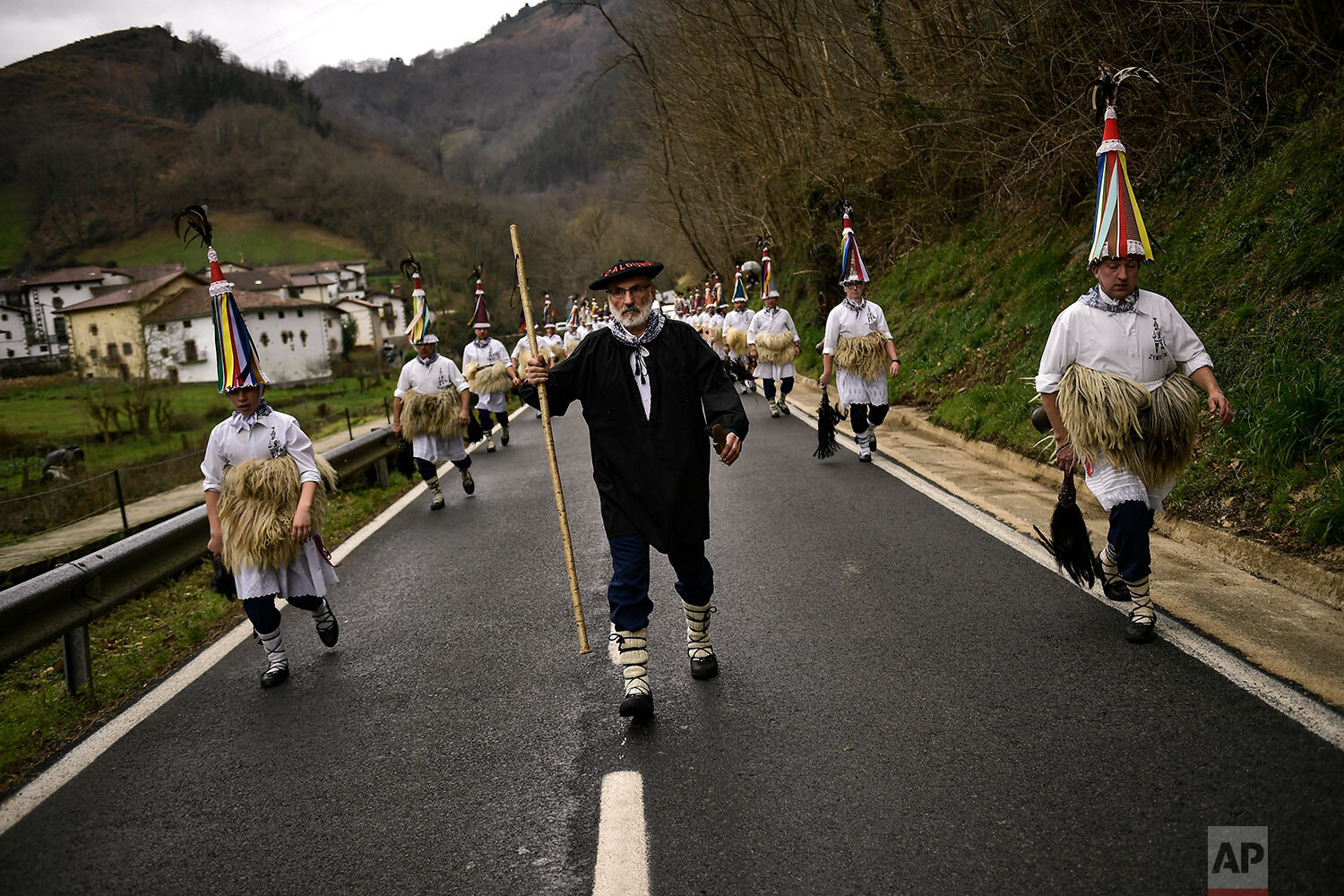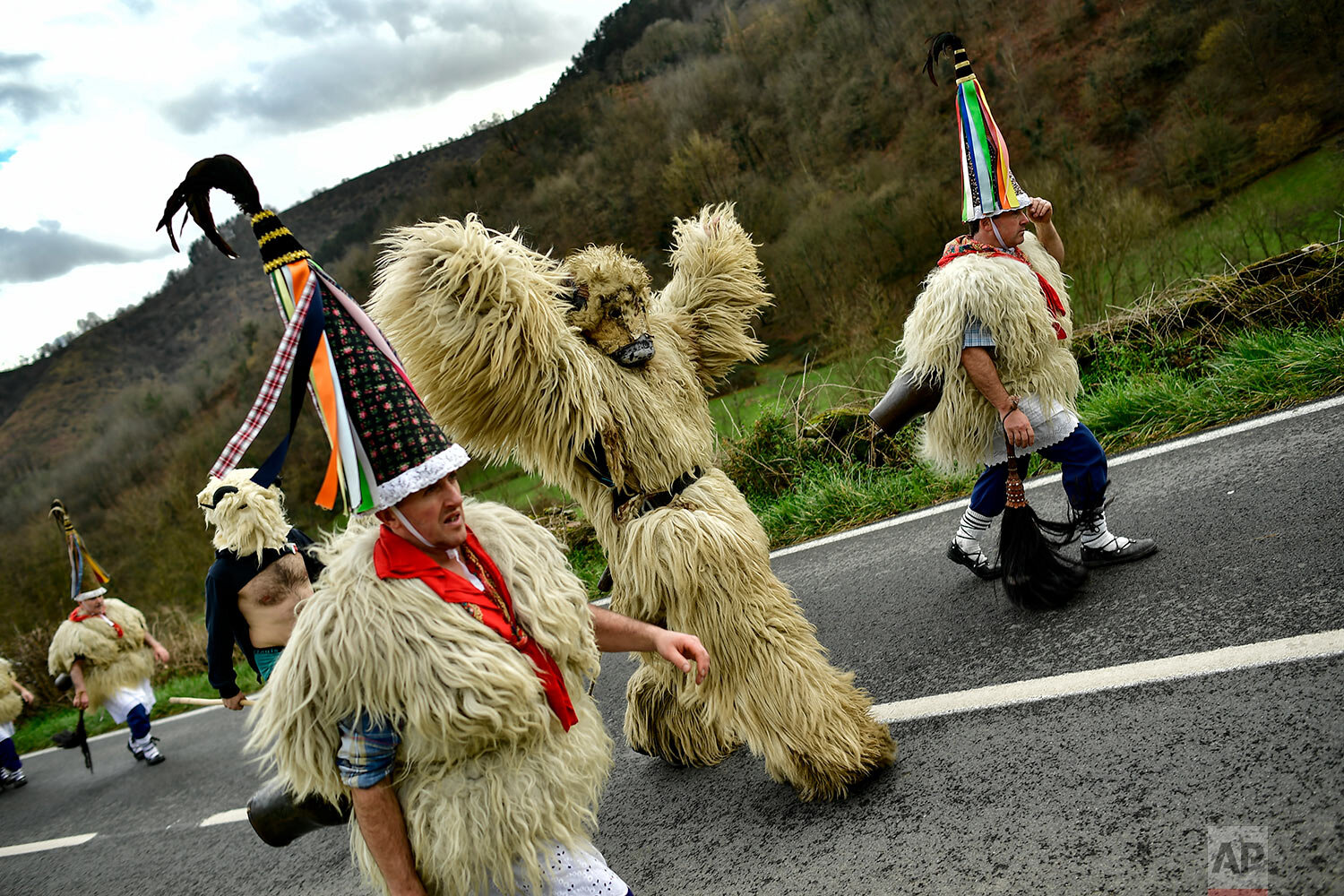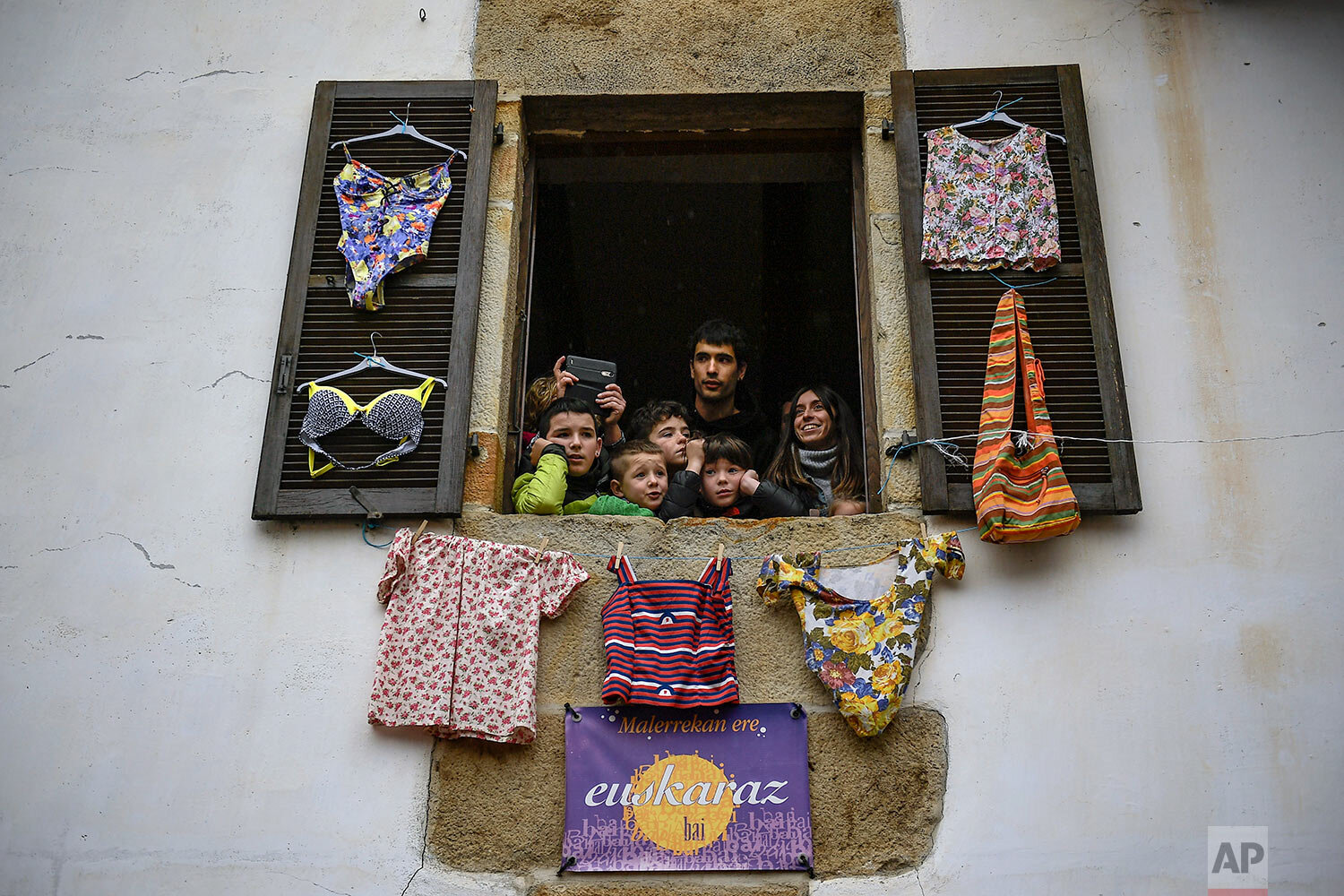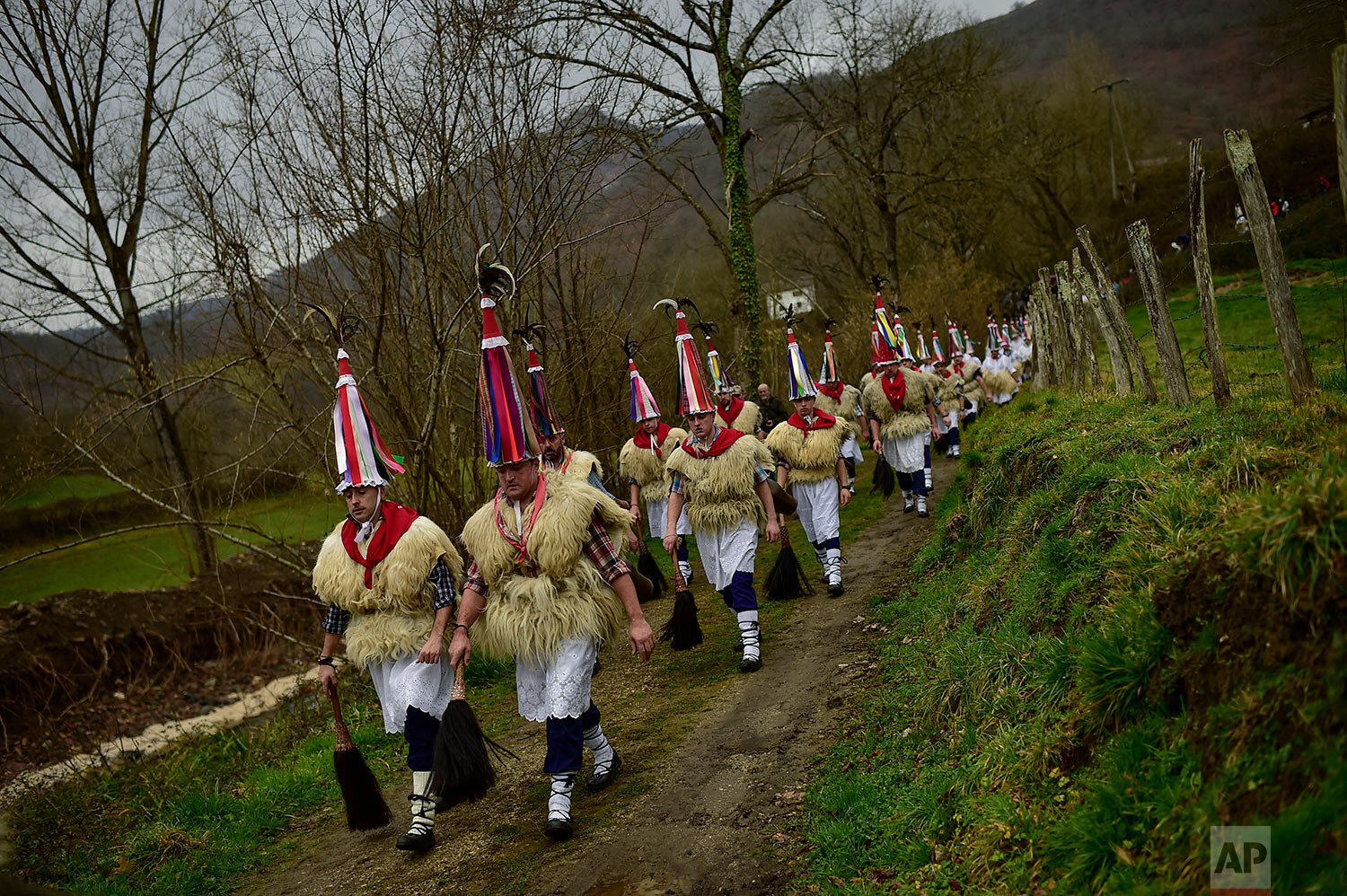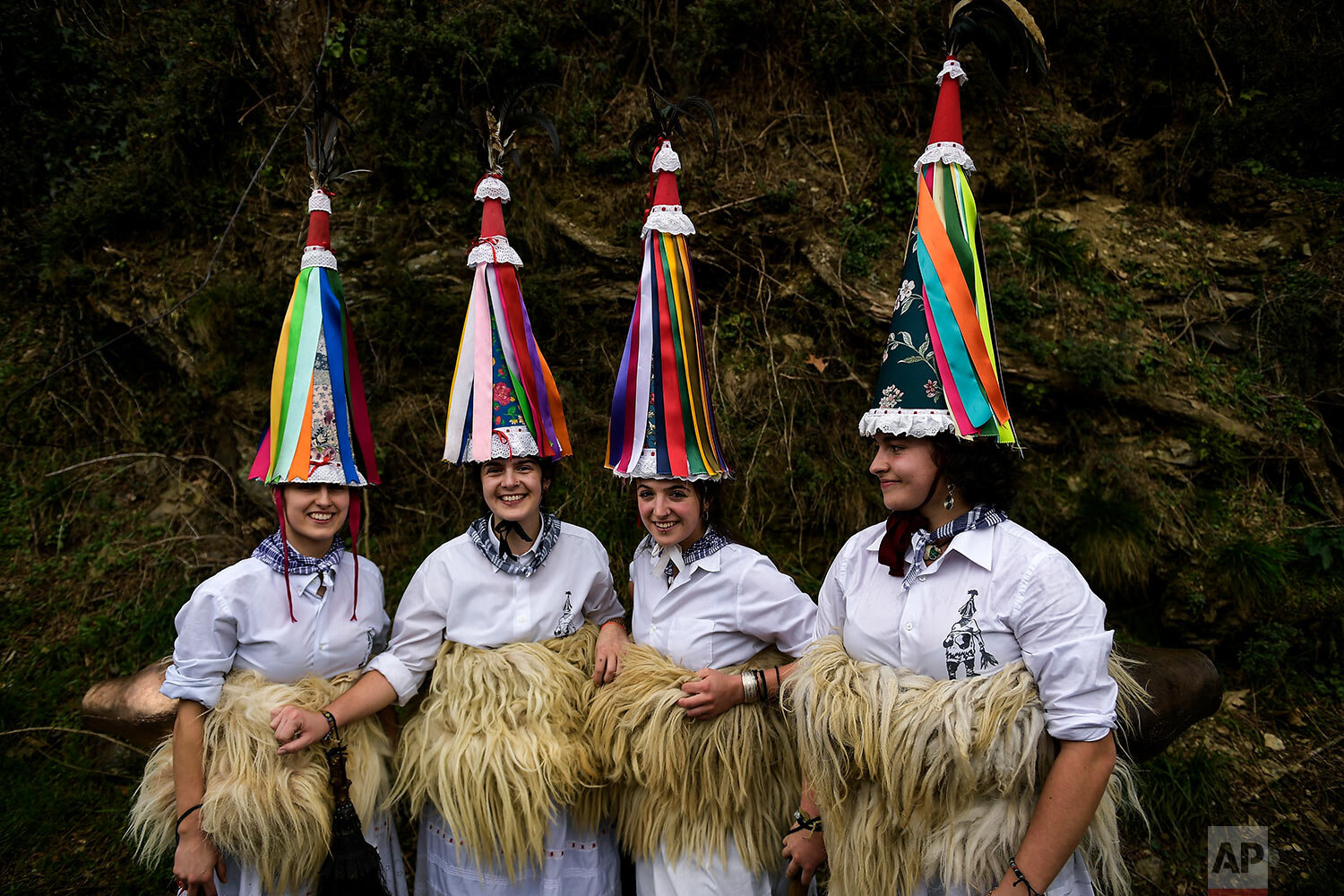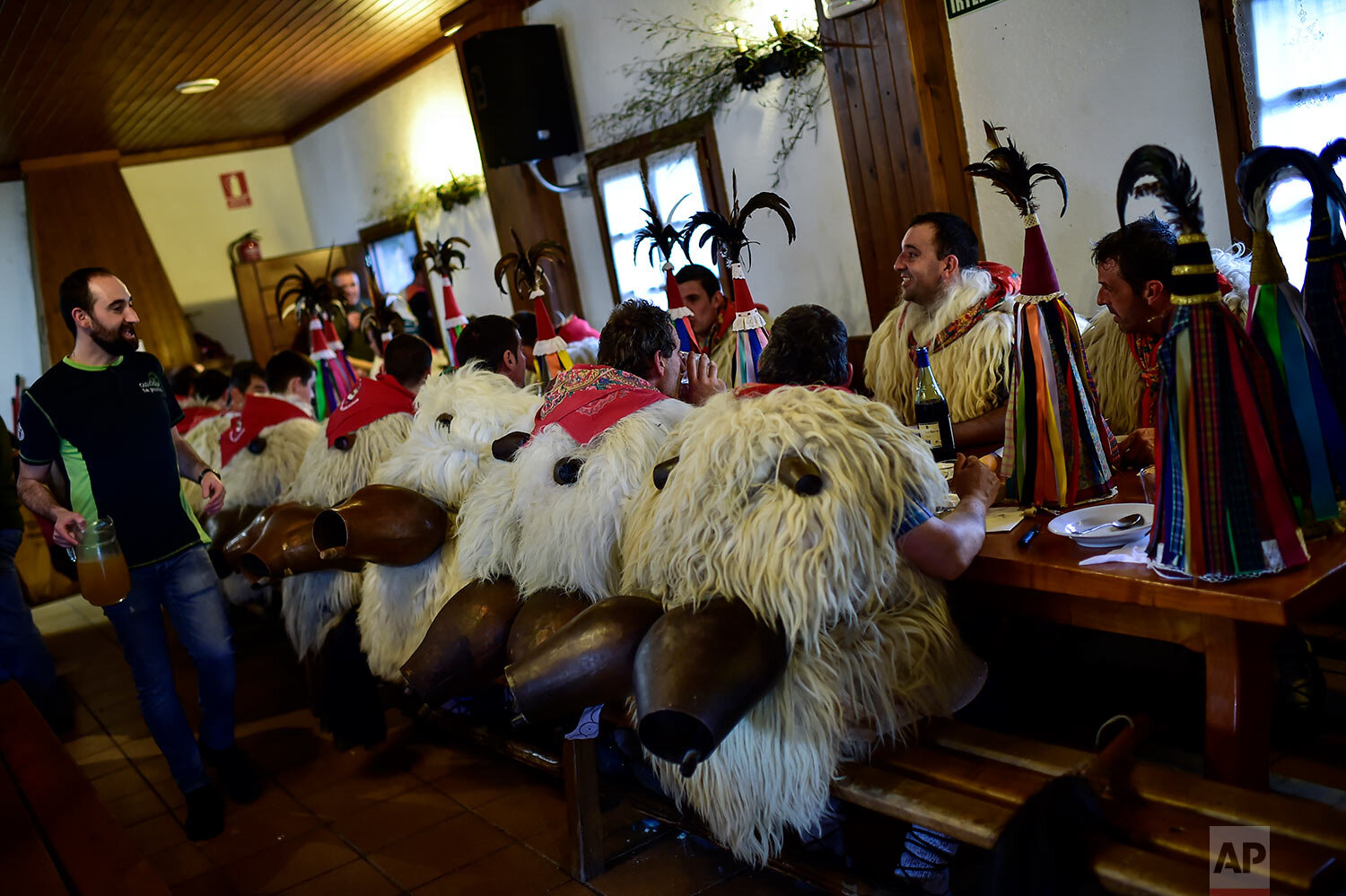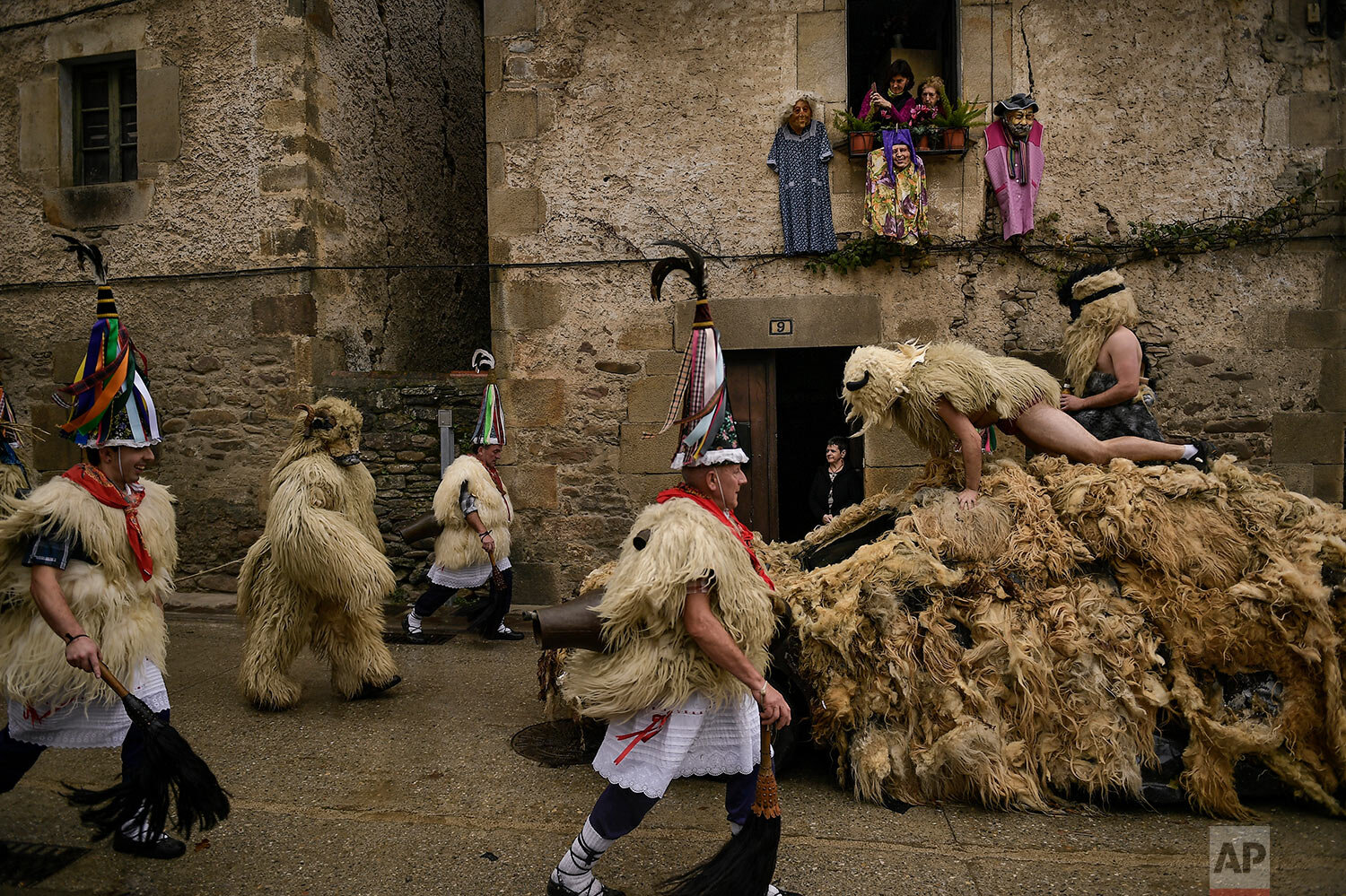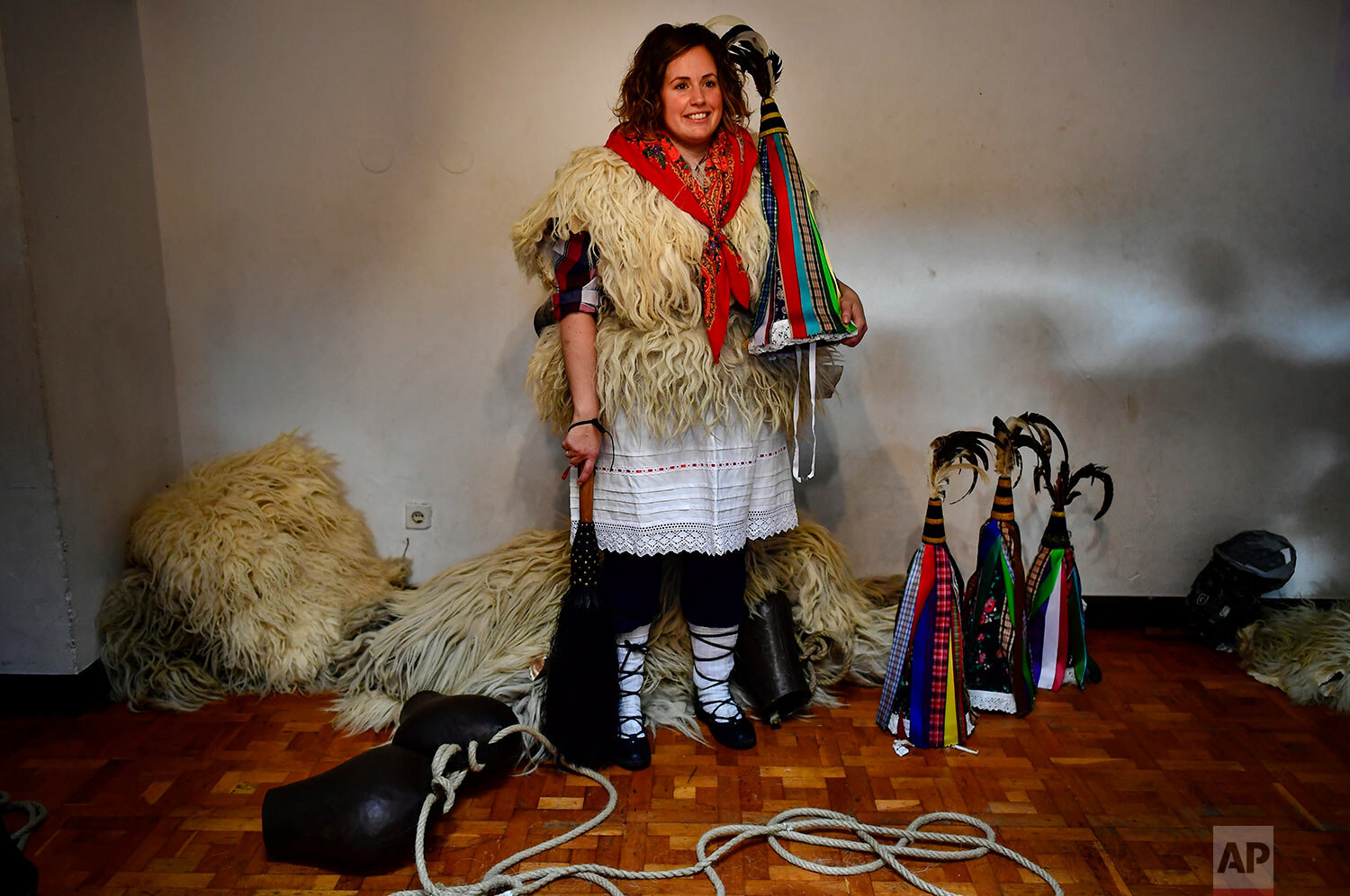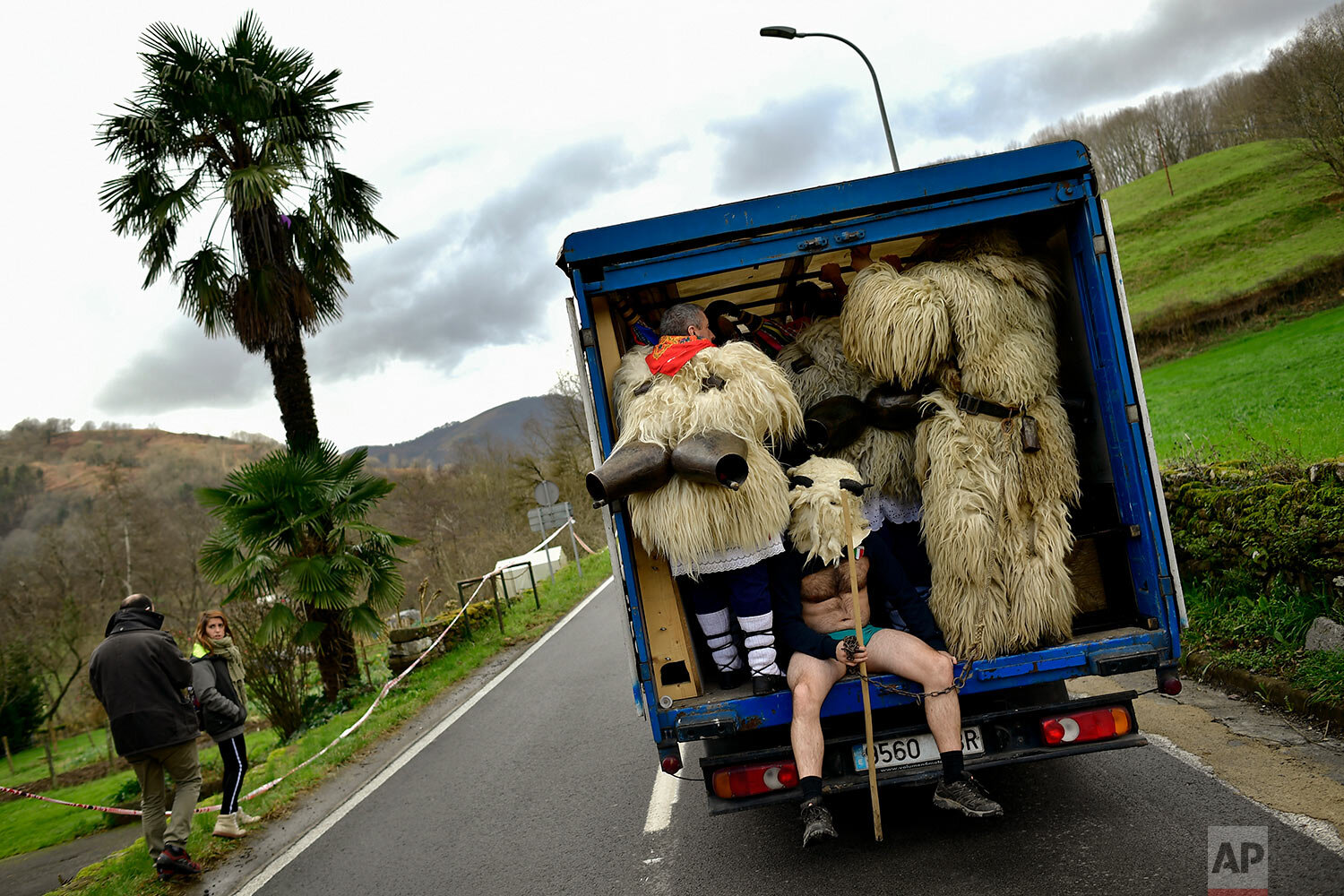Ancient carnival in Spain wards off evil spirits

In one of the most ancient carnival celebrations in Europe, dozens of people don sheepskins, lace petticoats and conical caps, sling cowbells across their backs and parade through two Spanish towns.
The groups, named “Joaldunak,” after the Basque-language word for cowbells, march through the northern towns of Ituren and Zubieta to herald the advent of spring.
The annual procession stems from ceremonies held to ward off evil spirits and bless the harvests to come. The celebration, traditionally held at the end of January, is believed to date from before Roman times.
The participants march along roads and mountain paths between the two towns, jingling their bells.
In this Tuesday Jan. 28, 2020 photo, a ''Joaldunak'' walks to take part in the Traditional Carnival, in the small Pyrenee village of Ituren, northern Spain. (AP Photo/Alvaro Barrientos)
In this Monday, Jan. 27, 2020 photo, “Joaldunak” Juan Jose Arregi, 51, poses for a photo as he takes part in a Carnival in the small Pyrenees village of Ituren, northern Spain. (AP Photo/Alvaro Barrientos)
Text from the AP news story, AP PHOTOS: Ancient carnival in Spain wards off evil spirits, by Alvaro Barrientos.
Photos Alvaro Barrientos
Visual artist and Journalist

